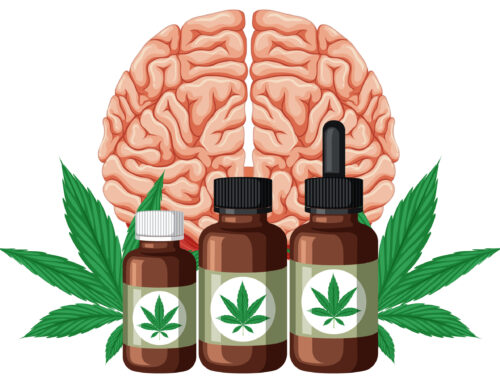Over the recent years, the dialogue on medical marijuana has been on an upsurge, especially on its prospects of relieving the symptoms of diverse health conditions. The digestive system is one area that has begun to raise eyebrows, and diseases such as Irritable Bowel Syndrome (IBS), Crohn’s disease, and even Gastroesophageal Reflux Disease (GERD) have been in the spotlight. This article plunges into how medical cannabis can soothe these problems, the positives that it can introduce to the picture, and the place it may have in gut health strategies.
What You Ought to Know on Digestion ailments: IBS, Crohn and GERD
Before going into the potential benefits of medical marijuana, one should be aware of the digestive conditions
1:- Irritable Bowel Syndrome ( IBS )
IBS is a common bowel condition that affects the large intestine (colon). It manifests some abdominal pains, bloat, diarrhea, and constipation. Although the precise mechanism of IBS has not yet been identified, it is assumed to be associated with issues of gut motility, stress, and inflammation.
2:- Crohn’s Disease
It is possible to define Crohn’sCrohn’s disease as a type of inflammatory bowel disease (IBD) that affects the gastrointestinal (GI) tract. It can be located at any point in the GI tract, but localizations in the small intestine and large intestine are the most frequent. They are the typical manifestations of this very condition that are mainly manifested by abdominal pain, diarrhea, weight loss, and fatigue. It is assumed that Crohn’s disease has a multi-factorial etiology, which entails the malfunction of the same immune system and the interaction of genetic and environmental factors.
3:- The Gastroesophageal Reflux Disease (GERD)
GERD is a health problem that affects the way we digest food. It occurs when acid from the stomach regurgitates back into the tube that carries food to the stomach, known as the esophagus. This can cause a burning pain in your chest, induce belching, or make it difficult to swallow.
This occurs when a special valve at the bottom of the esophagus fails to function correctly. Medical marijuana, made from the cannabis plant, is also related to digestion. Some studies suggest that it can aid in how our body digests food.
1:- Cannabinoid Receptors and The GI tract
The human body has a system of cannabinoid receptors, which are subdivisions of the endocannabinoid system. The receptors can be found throughout the body, including in the digestive system. Activation of these cannabinoid receptors in the GI tract is likely to alter its motility, inflammation, and GI barrier function. The CB1 receptors and the CB2 receptors involved in controlling digestion are vital.
Let us consider an example where the CB1 receptors are employed to control bowel movement, and the CB2 receptors are used to manage inflammation. The fact that a balance of these receptors can be utilized to keep the symptoms of gastrointestinal illnesses at a low level could be attributed to the fact that it regulates bowel movements, inflammation, and pain.
2:- Regulation and inflammation of the immune system
Inflammation is one of the major causes of most digestive disorders, including Crohn’s and IBS. Medical marijuana has proved to be a regulatory factor on the immune system, and decreasing inflammation might help in reducing the symptoms of these chronic diseases. Both CBD and THC can target immune cells involved in the inflammatory process and exhibit anti-inflammatory activity.
Cannabis may also offer an alternative to treatment when it comes to the case of Crohn’s, a disease that presents itself with a hyperactive immune system that leads to the chronic inflammation of the GI tract. By targeting the CB2 receptors, cannabinoids can suppress the inflammatory responses that occur in the immune system. This would reduce the effects of flare-ups.
3:- Pain and Cramping: The conditions are treated by using pain relief to alleviate symptoms.
Pain and cramping are some of the most incapacitating forms of IBS and Crohn’s symptoms. Through its analgesic (pain relieving) property, medical marijuana (and mainly the THC component) can be utilized in controlling the aches and discomfort encountered in the abdominal region. The cannabinoid receptors located in the central nervous system (CNS) are affected by THC, and this aids in the prevention of pain messages.
It is, however, believed that CBD possesses other therapeutic effects, such as muscle relaxation and its anxiety-reducing impact, which are indispensable to the victims of the cramps in the guts and anxiety that IBS is known to cause.
4:- Inhibition of Nausea and Appetite control
In psychology courses on digestive disorders, nausea and loss of appetite are common concerns. These issues often relate to chronic infections like irritable bowel syndrome (IBS) and Crohn’s disease, which can cause malnutrition. I have been looking into solutions, and THC from cannabis seems to be a promising option. It may help increase appetite and reduce nausea, offering relief to individuals with chronic conditions, such as those with Crohn’s disease who struggle with eating or digesting food.
5:- Improved Sleep
Sleep can also be affected due to chronic pain and discomfort that is induced by IBS and Crohn which further leads to fatigue and prolongation of symptoms. Increased CBD strains of medical marijuana have also been found to improve the quality of sleep because they assist in the reduction of pain, anxiety, and stress. Sound sleep is a good way for the body to heal and leads to overall well-being.
Systematic Reviews and Studies Research and Evidence
Studies indicate that medical marijuana can be used to deal with digestive issues, mainly inflammatory bowel diseases (IBD) such as Crohn’s and ulcerative colitis. It has the ability to relieve stomachaches, nausea, and diarrhea and may also enhance appetite improvement and weight gain. Nevertheless, additional studies are also required to verify these advantages and determine the optimal doses.
Some other studies also proposed that CBD may act by decreasing pain, cramping, and bloating realized during irritable bowel syndrome (IBS), so it could offer assistance as treatment. Nevertheless, there is a need to conduct more research to ascertain the safety of the product after prolonged usage.
Long-term use of medical marijuana in treating a gut problem should be handled with care because there is a potentiality of the occurrence of side effects such as dizziness and dry mouth. Patients should consult with their doctors to discuss the dosages and potential side effects of other medications.
Legal and Accessibility Consideration
The legality of medical marijuana is also dependent on the country and state, thus affecting accessibility of the same to the patient who is seeking treatment. At the locations where medical marijuana is accepted, it can be provided in the form of oils, tinctures, capsules, and smokable products. Patients are advised to consult their physician to determine the best form and dosage of the drug that suits their condition.
Conclusion
THC and CBD are common names of medical marijuana, which is already coming to the attention of physicians when they consider sore bellies. Its ability to relieve, soothe angry tissue, stimulate or stabilize hunger, and even assist restless sleepers draws patients to it every day. However, since the banner research is not yet extensive, scientists caution that larger tests and more time are required before it can be determined how safe it will be after several years or which dose is the most effective.
Provided that these strains continue to tread the treadmill of the lab, physicians might soon include cannabis along with fiber pills and probiotics when they discuss guts. Until that banner day arrives, anyone considering the green fix should consult their usual clinic team to ensure that the dosing is intelligent and that side effects are minimal.




